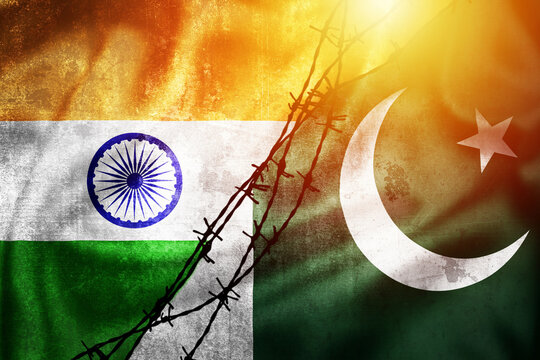Abysmal Record": India's Blistering Response to Pakistan Over Waqf Act 2025 – What's Really Going On?
Let me take you back to a moment that felt like déjà vu—for all the wrong reasons.
It was a regular Tuesday evening, chai in hand, scrolling through the news when a headline popped up that made me pause: "Pakistan slams India over the Waqf Amendment Act, India hits back." Now, if you’ve followed Indo-Pak relations even remotely, you know this isn’t exactly new terrain. But what followed? That was something else.

First Off, What’s the Waqf Act (Amendment), 2025 All About?
Here’s the thing—this isn’t just some random law about religious matters, contrary to what some voices (across the border) might be implying.
The Waqf Amendment Act, 2025, passed on April 4 and signed by the President a day later, deals primarily with property and management, not faith or belief systems. The government’s key argument? A significant chunk of land had been misused under the label of Waqf, often to the detriment of the very communities it was meant to uplift.
Think of it like this:
Imagine donating your house to charity, believing it'll serve the poor. But years later, it turns out a land mafia is renting it out for commercial purposes and pocketing the cash. That’s what the government says has been happening for decades with Waqf properties. The amendment aims to stop that.
Prime Minister Modi even addressed it directly:
"If Waqf properties had been used honestly, Muslim youths wouldn’t need to earn a livelihood by repairing bicycle punctures. But only a few land mafia benefited… this loot of the poor will stop now."
Hard-hitting, right?
Pakistan's Comments and India's Swift Retort
Now here’s where things got spicy.
Pakistan, unsurprisingly, raised its voice—calling the Act discriminatory and another attempt to marginalize minorities in India. But New Delhi didn’t waste a second to clap back. Foreign Ministry Spokesperson Randhir Jaiswal said, and I quote:
"We strongly reject the motivated and baseless comments made by Pakistan... Pakistan has no locus standi... It would do better to look at its own abysmal record..."
Yikes. That wasn’t just a statement—it was a mic drop.
Why Pakistan’s Reaction Feels… Ironic?
Let’s be honest here. When a country with a consistently dismal track record on minority rights starts preaching about minority welfare, it raises eyebrows.
Think about:
- The systemic oppression of Ahmadiyyas.
- The abduction and forced conversion of Hindu and Christian girls.
- The regular attacks on minority shrines.
India's response isn’t just defensive—it’s pointing out a double standard. It’s like being judged on your cooking by someone who just burned instant noodles.
What’s New in the Waqf Law?
Let’s break it down:
- Only practising Muslims for at least 5 years can now dedicate properties to Waqf.
- Women must receive their inheritance first before such properties are declared Waqf.
- Tribal land is protected—it can’t be claimed by the Waqf Board.
- Disputes on government land? Only a senior government officer (above collector rank) can decide.
- Plus, non-Muslims will be added to Waqf Boards, enhancing transparency.
This isn’t about taking away rights—it’s about safeguarding them from misuse.
The Politics Behind the Protests
Of course, no big reform is complete without some noise. There were protests—especially in West Bengal—where tensions flared, tragically leading to a few deaths. Opposition parties, like AIMIM, accused the government of launching a "4D attack"—Defame, Divide, Disenfranchise, and Dilute.
Asaduddin Owaisi even tore up a copy of the bill in Parliament, evoking Gandhi’s legacy in an emotional outburst. Whether one sees that as drama or defiance depends on your political lens, honestly.
The Bigger Picture: Property, Power & Perception
At the heart of this battle is a fight for control over thousands of crores worth of land—much of it donated with noble intentions, but left unmanaged or misused.
This Act, if implemented fairly and transparently, could:
- Restore rightful ownership to poor and backward Muslims.
- Prevent misuse by shady land agents.
- Build more trust between religious communities and the state.
But if not handled delicately, it could just as easily deepen divides.
Beyond Borders & Headlines
Honestly, this isn’t just about India or Pakistan. It’s about accountability, transparency, and the long-overdue need to reform outdated structures that no longer serve the people they were meant to.
Sure, the debates will rage on. Accusations will fly. But at the end of the day, reforms like these—if done right—could actually bridge the gap between faith and fairness.

